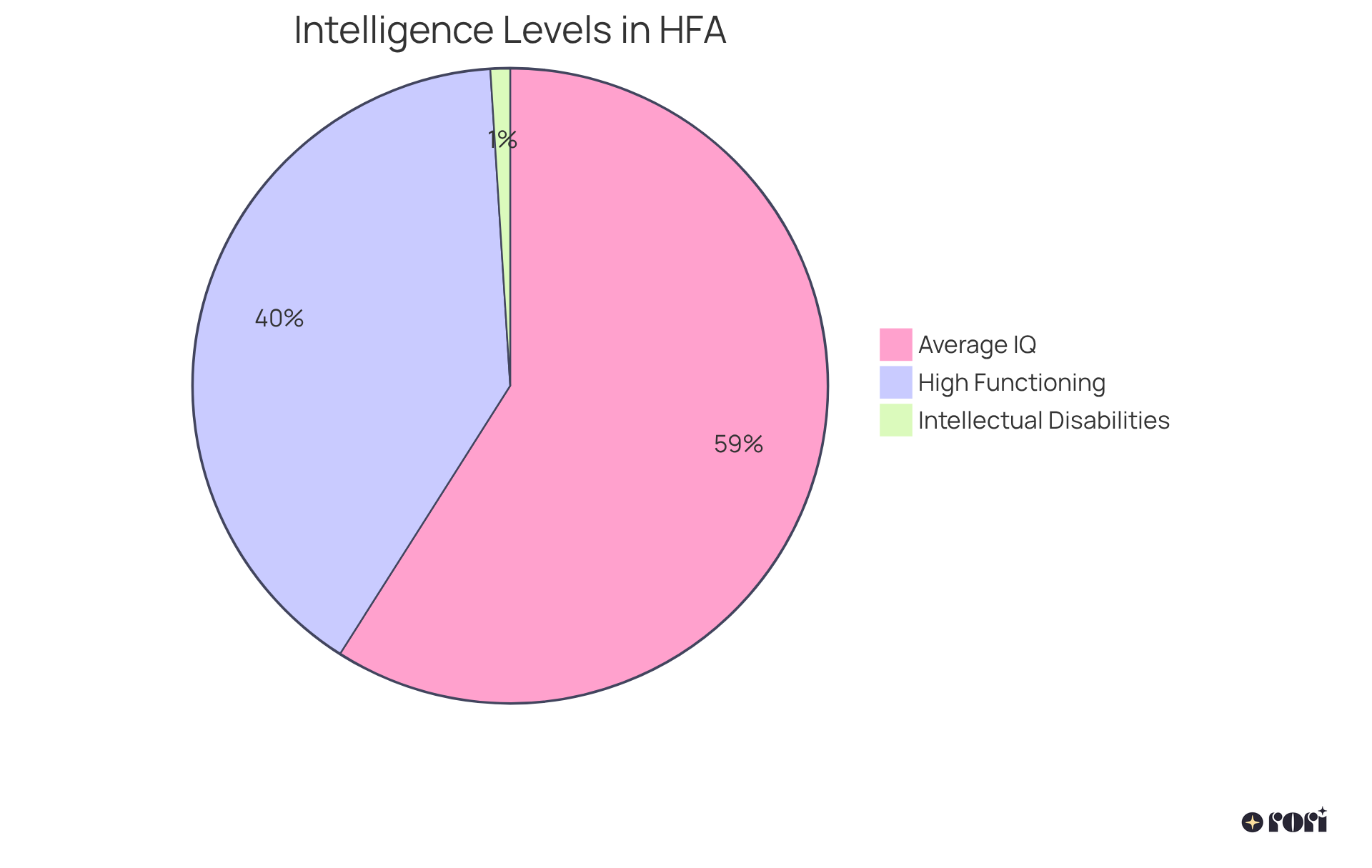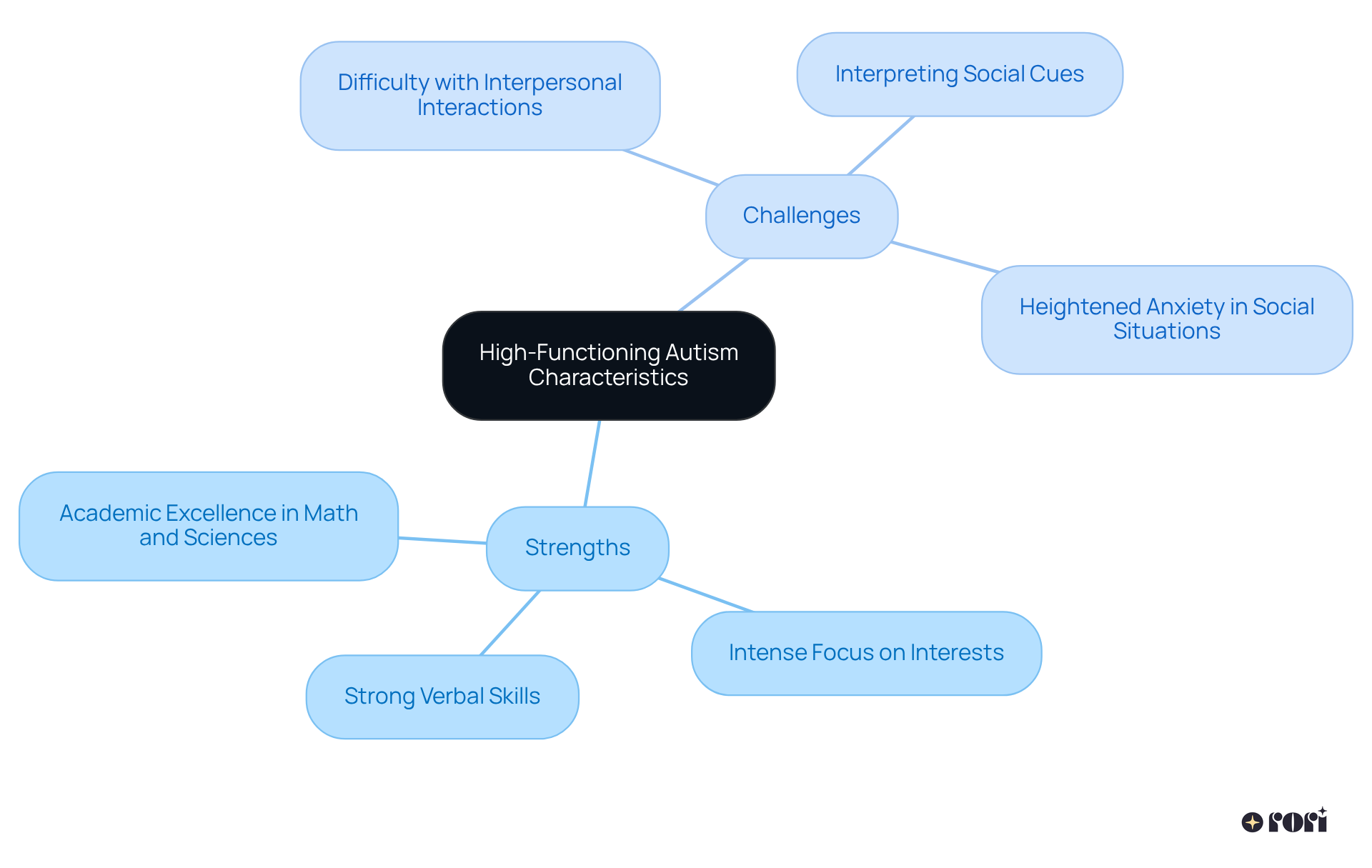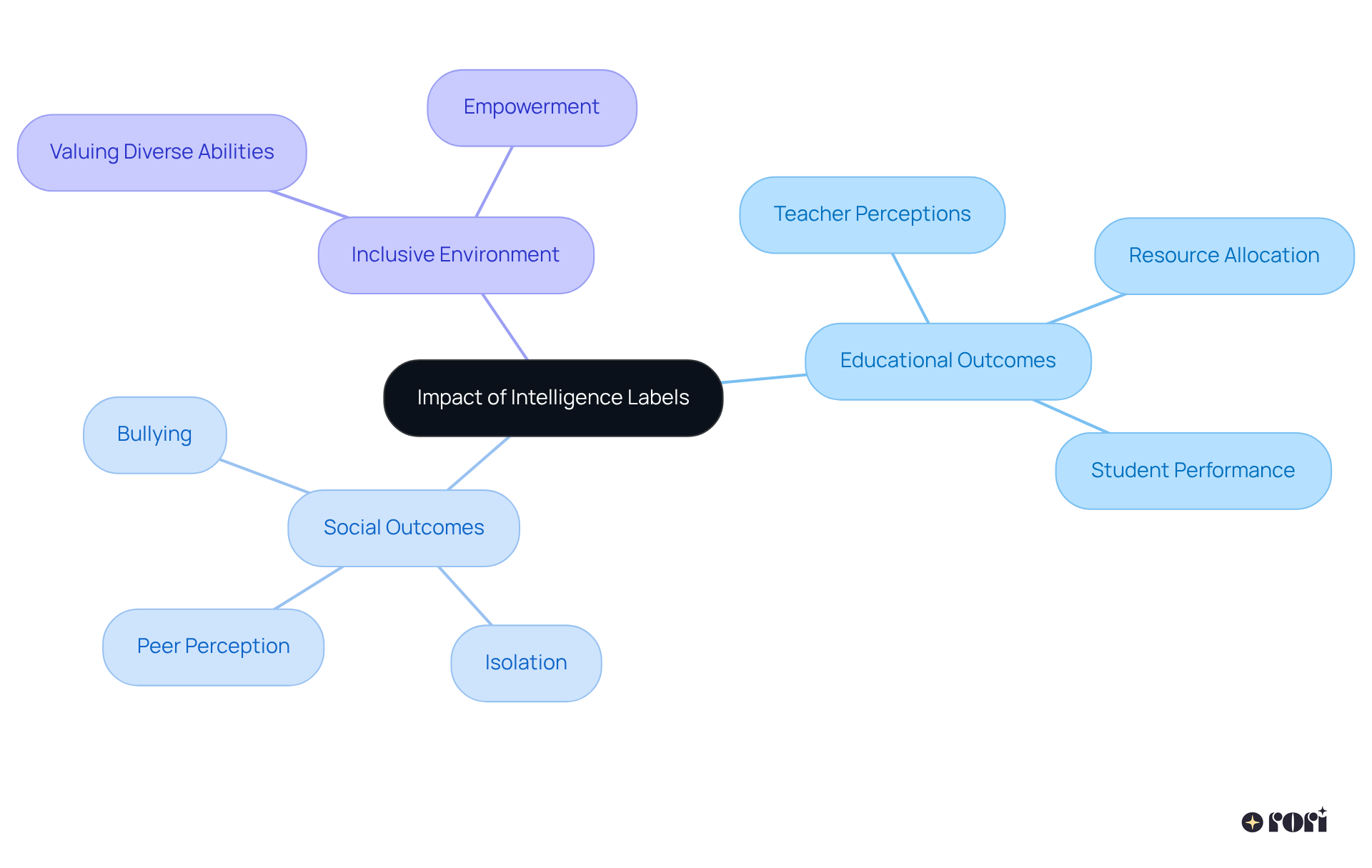This article tackles a common misconception: that individuals with high-functioning autism (HFA) are automatically smarter. In reality, intelligence levels within this group can vary widely.
It’s important to recognize that while many individuals with HFA do have average or above-average IQs, they often face unique challenges. Unfortunately, these challenges can be overlooked, especially when society and educators set unrealistic expectations.
Let’s explore this together! 🌟
The idea that individuals with high-functioning autism have superior intelligence can often overshadow the rich and varied reality of their cognitive abilities. Sure, many may shine academically, but research shows there’s a wide spectrum of intelligence levels within this community. This challenges the common stereotype of the 'autistic savant.'
In this article, we’ll dive into the intricate world of intelligence in high-functioning autism. We’ll explore how these misconceptions can impact educational and social outcomes. So, how can we, as a society, better support those on the spectrum? Let’s move beyond simplistic labels and start recognizing their unique strengths and challenges together! 😊
Some people believe that those who are high functioning autism smarter may have superior intelligence, which can lead to misunderstandings about the cognitive skills of everyone on the spectrum. However, research shows a wide range of intelligence levels among those with HFA. In fact, about 30% to 50% of individuals with this condition are high functioning autism smarter, and nearly 60% of those on the spectrum have average or above-average IQ scores. Yet, it's important to remember that a significant number still face intellectual disabilities.
This misunderstanding can create unrealistic expectations for educators and parents. They might think that high-functioning individuals will naturally thrive academically or socially without the right support. Plus, media portrayals often reinforce the stereotype of the 'autistic savant,' overshadowing the diverse abilities and challenges faced by the broader community of individuals on the spectrum. As developmental pediatrician Maja Z. Katusic points out, 'nearly half of people with ASD are high functioning autism smarter, having average or higher IQ,' highlighting the need for awareness that those with higher IQs on the autism spectrum can be overlooked and miss out on valuable services.
By dispelling these misconceptions, we can cultivate a clearer understanding of the cognitive characteristics associated with high-functioning conditions. This understanding can lead to tailored interventions that address specific needs rather than relying on generalized assumptions. So, let’s explore this together! We’re here to help you every step of the way!

Individuals with high-functioning conditions often showcase a unique mix of strengths and challenges that impact their daily lives. Many of them have strong verbal skills and an intense focus on specific interests, often excelling in academic areas like mathematics and the sciences. Did you know that studies show around 30-50% of people who are high functioning autism smarter possess average or above-average intelligence? This certainly adds to the conversation about whether individuals who are high functioning autism smarter in terms of their academic abilities!
However, these strengths can sometimes be overshadowed by challenges in interpersonal interactions and the nuances of communication. Clinicians have noted that individuals with HFA may find it tough to interpret interpersonal cues, which can make forming and maintaining relationships a bit tricky. As Ruben Kesherim points out, "Individuals with high functioning autism may struggle with interpersonal interactions and have difficulty understanding cues, maintaining eye contact, or engaging in reciprocal conversations." This struggle can be intensified by heightened anxiety in social situations, making peer engagement particularly challenging.
For example, a child might shine in a classroom but feel overwhelmed during group activities, leading to withdrawal or frustration. Understanding these traits is crucial for creating effective support strategies that leverage their strengths while addressing interpersonal challenges. Customized strategies, like interpersonal skills training and cognitive behavioral therapy, can provide essential tools for individuals with HFA to navigate social environments more effectively. This ensures they have the resources they need to thrive!
Additionally, it’s important to recognize that about 1 in 36 children in the United States are diagnosed with spectrum disorder (ASD). This highlights the significance of understanding HFA within the broader neurodiversity community. Let’s explore this together and find the best ways to support our children!

The way we categorize people with high-functioning intellectual disabilities based on intelligence can really shape their social and educational experiences. Labels like 'gifted' or 'high-functioning' often set expectations that might not truly reflect a person's abilities, leading to unnecessary pressure to meet certain standards. In schools, these labels can influence how teachers perceive students and how resources are allocated. This can sometimes mean that those who struggle, despite having a high IQ (defined as 70 or above for those with high functioning autism smarter), may not receive the support they need. Research shows that students labeled as high-functioning might face lower expectations from educators, which can impact their academic performance and self-esteem, leading to anxiety and depression.
Social interactions are affected too. Peers might view labeled individuals through a limited lens, seeing them as either 'smart' or 'different.' This narrow view can result in isolation or even bullying, making it harder for them to build meaningful relationships. Interestingly, research indicates that people who are high functioning autism smarter often have incredible abilities, like logical reasoning and creativity. However, these strengths can sometimes get overshadowed by the challenges associated with their diagnosis.
It's crucial to remember that intelligence is just one aspect of a person's identity and doesn’t determine their potential or worth. By fostering an inclusive environment that values diverse abilities and experiences, we can better support those with high-functioning autism as they navigate their social and educational landscapes. Focusing on strengths rather than limitations can empower these individuals to flourish, ultimately creating a more accepting and understanding society. Let’s explore this together!

The idea that individuals with high-functioning autism have superior intelligence is a common misconception. This oversimplifies the diverse cognitive profiles within the autism spectrum. It’s important to understand that intelligence levels among those with high-functioning autism can vary widely. Many individuals have average or above-average IQs, while others may face intellectual disabilities. By addressing these myths, we can foster a more accurate understanding of high-functioning autism, which leads to better support systems tailored to individual needs.
Throughout this discussion, we highlight the strengths and challenges faced by individuals with high-functioning autism. Many have exceptional skills in specific academic areas, but they often struggle with social interactions and communication nuances. The impact of intelligence labels on educational and social outcomes is significant. These labels can create unrealistic expectations and lead to a lack of necessary support. Mislabeling can hinder both academic performance and self-esteem, highlighting the need for a more nuanced approach to understanding and supporting individuals on the spectrum.
Ultimately, creating an inclusive environment that values the diverse abilities of those with high-functioning autism is crucial. By shifting our focus from intelligence alone to a more holistic view of each individual’s strengths and challenges, we can build supportive frameworks that empower these individuals to thrive. Embracing neurodiversity and dispelling common myths will enhance understanding and promote acceptance and integration within educational and social settings. Let’s explore this together and continue to support one another on this journey!
What is the common misconception about individuals with high-functioning autism (HFA) and intelligence?
Many people believe that individuals with high-functioning autism are inherently smarter, leading to misunderstandings about the cognitive skills of everyone on the autism spectrum.
What does research indicate about the intelligence levels of those with high-functioning autism?
Research shows a wide range of intelligence levels among individuals with HFA. Approximately 30% to 50% of individuals with this condition are considered high functioning, and nearly 60% have average or above-average IQ scores. However, a significant number still face intellectual disabilities.
How can these misconceptions affect educators and parents?
Misunderstandings can create unrealistic expectations for educators and parents, who may assume that high-functioning individuals will thrive academically or socially without appropriate support.
What role does media portrayal play in the perception of individuals with autism?
Media often reinforces the stereotype of the 'autistic savant,' which can overshadow the diverse abilities and challenges faced by the broader community of individuals on the autism spectrum.
What is the importance of recognizing the cognitive characteristics associated with high-functioning autism?
Recognizing these characteristics is crucial for developing tailored interventions that address specific needs, rather than relying on generalized assumptions about individuals on the autism spectrum.